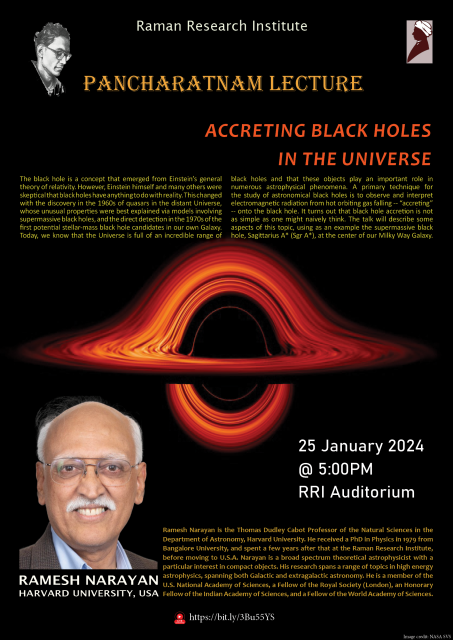Pancharatnam Lecture
Accreting black holes In the universe
Speaker: Professor Ramesh Narayan (Harvard University, USA.)
The black hole is a concept that emerged from Einstein’s general theory of relativity. However, Einstein himself and many others were skeptical that black holes have anything to do with reality. This changed with the discovery in the 1960s of quasars in the distant Universe, whose unusual properties were best explained via models involving supermassive black holes, and the direct detection in the 1970s of the first potential stellar-mass black hole candidates in our own Galaxy. Today, we know that the Universe is full of an incredible range of black holes and that these objects play an important role in numerous astrophysical phenomena. A primary technique for the study of astronomical black holes is to observe and interpret electromagnetic radiation from hot orbiting gas falling -- “accreting” -- onto the black hole. It turns out that black hole accretion is not as simple as one might naively think. The talk will describe some aspects of this topic, using as an example the supermassive black hole, Sagittarius A* (Sgr A*), at the center of our Milky Way Galaxy.

Academy of Sciences.